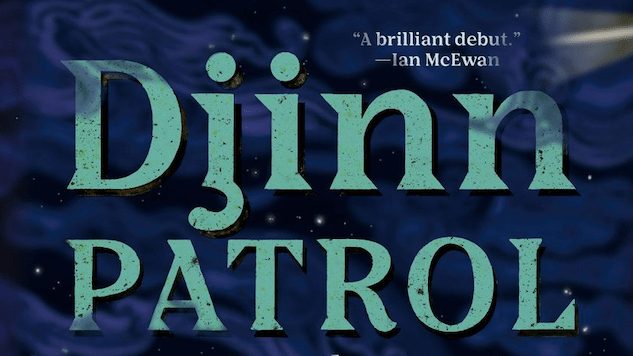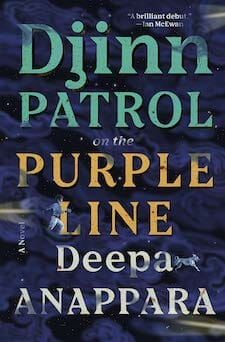
In her debut novel, Djinn Patrol on the Purple Line, journalist Deepa Anaparra writes a mystery through the eyes of three children investigating kidnappings in their community.
Nine-year-old Jai and his best friends Pari and Faiz live in a basti, an impoverished neighborhood, on the edge of an unnamed Indian city. The children spend their days as children do around the world: playing games, teasing one another, going to school, and, for Jai, watching police procedurals. When classmates start going missing in their basti, Jai is quick to designate himself lead detective in an unofficial investigation to determine who or what is taking the kids—child snatchers or djinns. As more kids go missing, however, the tension between the basti’s Hindu and Muslim residents reaches dangerous levels.
 The novel’s roots are based in Anappara’s work as a journalist in the late 1990s and early 2000s, as she explains in the book’s afterward. Reporting on education, she spoke often to children on the margins of society—those living in extreme poverty or experiencing the aftermath of religious violence. Her interactions with the kids, who she describes as funny and smart rather than defined by the tragedies shaping their lives, made her want to write a story that captures that reality. Anappara’s reporting also opened her eyes to the largely ignored epidemic of missing children in India; she notes in the afterward that around 180 children go missing each day by some estimates.
The novel’s roots are based in Anappara’s work as a journalist in the late 1990s and early 2000s, as she explains in the book’s afterward. Reporting on education, she spoke often to children on the margins of society—those living in extreme poverty or experiencing the aftermath of religious violence. Her interactions with the kids, who she describes as funny and smart rather than defined by the tragedies shaping their lives, made her want to write a story that captures that reality. Anappara’s reporting also opened her eyes to the largely ignored epidemic of missing children in India; she notes in the afterward that around 180 children go missing each day by some estimates.
That epidemic, and the way one community behaves as it strikes them again and again, serves as the novel’s emotional core. Jai’s basti is a complex place, one where the residents simultaneously look out for one another and are absorbed by the concerns of their own lives. Even those who want to help can only accomplish so much, and there’s an implied sense that one can only depend on one’s own family. Even though the novel is told through Jai’s perspective and is limited to what he observes, the pain of the families who lose their children is palpable. Ignored by society and the authorities, their desperation for answers becomes a tool for division by local leaders, threatening to unleash riots and violence amongst those who should be working together.
In the midst of all of this, childhood itself isn’t sacred. Girls are concerned about being forced into marriages and made to give up their own ambitions, including Runu, Jai’s prize-winning athlete sister. Jai’s friend Faiz has to leave school to help support his family by selling roses and toys in the street. Bahadur, the first child to go missing, frequently slept in alleys to avoid the abuse doled out by his alcoholic father. Groups of children scavenge in the garbage heaps that act as a divider between the basti and the nearby luxury apartments where many of the women in the basti work. Often unsupervised due to their parents’ need to work away from the home for long hours, vulnerability defines their lives.
But the kids are still kids. Jai, who appears less encumbered by concern than his friends or peers, gets hung up on petty concerns, like who gets to be the detective and who gets to be the assistant in their investigation. Jai and his friends squabble while trying to support one another, and all three take their work seriously despite being told to knock it off by the adults. The children are a delightful, touching throughline for the story, simultaneously closest to the threat that hangs over their basti and convinced of their own invincibility—even if they are frightened by being out after dark.
More than a thriller, Djinn Patrol on the Purple Line is a moving coming of age story, one in which an often invisible form of childhood is centered. While not softening the blows of poverty—the hunger, the neglect, the uncertainty—Anaparra’s vision of this community is vibrant, rather than defined by lack. As for Jai and his friends, they prove to be dynamic, intelligent and, at times, infuriating—just like kids everywhere.
Bridey Heing is a freelance writer based in Washington, DC. More of her work can be found here.